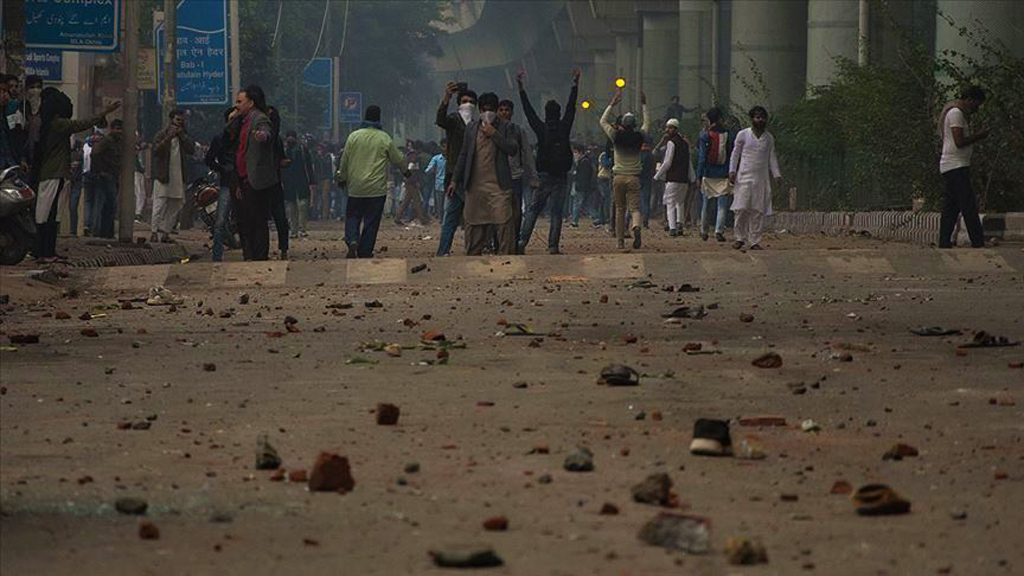[Daily Sabah, 18 December 2019]

India's citizenship act: Another blow to the nation-state
The modern world is dominated by nation-states, i.e. the Westphalian system. Although theoretically the concepts of nation and state overlap, in reality, they do not. The nation-state is a political institution that is not based on ethnicities, culture or religion. There are two main characteristics of nation-states: the most significant is territory, and the second is citizenship, as the only political link between the nation-state and the people of that territory. In principle, it covers every individual who lives in the country during the establishment process.
Share
The modern world is dominated by nation-states, i.e. the Westphalian system. Although theoretically the concepts of nation and state overlap, in reality, they do not. The nation-state is a political institution that is not based on ethnicities, culture or religion. There are two main characteristics of nation-states: the most significant is territory, and the second is citizenship, as the only political link between the nation-state and the people of that territory. In principle, it covers every individual who lives in the country during the establishment process.
Globalization has weakened the nation-state, especially in the last quarter of the 20th century. On one hand, ultranationalist institutions, such as the European Union, have deteriorated the power and effectiveness of nation-states. However, with the rise of ultranationalism worldwide, there has been a return to the nation-state structure over the last two decades. Today, there is an increasing emphasis on nationalism, nation-states, nationality, national interests and national identity.
At a time of strong nation-states, two points have rendered the main characteristics of the political structure meaningless: territory and universal citizenship. The first recent example of this was the Nation-State Bill of Israel, which declared Israel as the nation-state of only the Jewish people and deprives others of the right of self-determination. Declaring a land as only belonging to one ethnic group naturally strips all other ethnic groups of their rights. In other words, it creates a discriminatory regime.
Following in the footsteps of Israel, India, the largest liberal democratic and secular country in the world, followed suit by introducing the Citizenship Amendment Act, which amends the Citizenship Act of 1955. The law was brought to Parliament by the ruling party, the Hindu ultranationalist Bharatiya Janata Party (BJP) led by Prime Minister Narendra Modi. After being accepted by Parliament, the law was ratified by the president on Dec. 12.
According to this law, the current Indian government made religion, not territory, the basis for citizenship. The Indian government has decided to grant citizenship to religious minorities, including Hindus, Sikhs, Buddhists, Parsis, Jains and Christians who migrated from neighboring countries, namely Pakistan, Bangladesh and Afghanistan, before 2014; however, the new law makes no reference to Muslim minorities, such as Rohingya Muslims who migrated from Myanmar or Bengali migrants. The current Indian government strongly opposes Rohingya refugees and Bangladeshi immigrants, calling them "termites." And if that is not enough, India has close ties with Myanmar, which has committed ethnic cleansing.
Nevertheless, Indian opposition groups and political parties, as well as international observers, have pointed out that this discriminatory law clearly violates the main principles of a nation-state, secularism and liberal democracy as well as the Indian constitution. First of all, it is a clear indication of the anti-Islamism policies of the ultranationalist government since it excludes Muslims, who constitute the country's second-largest religious group as 15% of the total population. It is obvious that Muslims living in the country will not accept this discriminatory law. After the introduction of the law, thousands of Muslims have already taken to the streets in protest, especially in the northeast of the country. Second, officials of the main opposition Congress Party, which ruled the country for decades, considered the law divisive, polarizing and exclusionary.
This is not the first time Modi has imitated Israeli policies. He also supported the end of the special status of occupied Kashmir and annexed the region, violating the principles of international law and United Nations resolutions. Many critics of the law, including Hindus, consider this last move as part of the supremacist agenda of Modi’s ultranationalist government and a threat to the unity of the state. The law will likely contribute to communal strife, national chaos and political instability. India has to stop imitating states who violate international standards and laws by harming their minorities, and it must live up to its extraordinary legacy based on the principle of "unity in diversity."
Tags »
Related Articles






